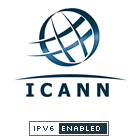
NavigationSearchUser loginRecent blog posts
|
Consultations on ICANN’s Operating Plan 2007-2008 – Arabic SessionConsultations on ICANN's Operating plan 07-08 were held in Lisbon with participants from the Arab region. Session was conduction in Arabic though the notes hereunder are in English. List of participants: Adel Gaaloul, ATI (.tn) Doug Brent, ICANN’s COO welcomed the participants. Presentation was given in Arabic by ICANN’s Middle East Liaison highlighting the key points of the operating plan. Comments from participants: Adel Gaaloul: It is clear that there is an improvement in ICANN’s transparency and accountability, as well as in quality of services delivered to its customers. However the operating plan does not seem to address any of the WSIS resolutions that were adopted in Tunis Agenda, i.e. issues like enhanced cooperation, etc. ICANN Liaison: This is merely an operating plan that shows activities and projects that the organization is undertaking over the course of the next fiscal year. So, it is different from a strategic plan which may be more focused on strategic directions, objectives, challenges, etc. However, the operating plan articulates some activities that may be directly or indirectly related to the Tunis Agenda. As an example, engagement with international organizations such as IGF is highlighted in the plan and is something that ICANN showed in Athens last year and is committed to continue doing this in the future. IGF is a key outcome of the Tunis Summit. Another example is global partnerships and the engagement of ICANN with the broader Internet community around the world, and particularly in developing countries, as well as partnerships with key international and regional organizations. This proves ICANN’s commitment in serving and outreaching communities in the developing world which was another key point throughout WSIS. Charles Shaban: Quite a good positive feedback coming from folks representing Intellectual Property business as regards ICANN’s revision of contracts with registries and registrars. Many ccTLDs through participation in ccNSO activities have positively recognized improvements in IANA’s processes reflecting on far better response times. Yet, and with regards to GAC, there are governments in the region that have concerns about the role of the GAC as an advisory committee to the ICANN board. Omar Karam: ICANN’s work methods and processes are quite unusual and are particularly challenging for our communities to cope with and comprehend. Quite a lot of things are going on and developing in a pace that we cannot keep up to speed with. ICANN Liaison: Couldn’t agree more on this. One of the real challenges of ICANN is to go with the speed of the Internet while at same time realize that we are addressing the entire Internet community with all its various users, cultures, stakeholders, etc. Therefore, and as was illustrated in the operating plan, communications is key for ICANN. Making information available in a simple language, news letters and alerts, blogs, fact sheets, on line public participation are examples of products that ICANN has delivered over the past few months in order to enhance communications. Yet, there is a lot to be done. Mohamed El-Bashir: ICANN is improving in various aspects. Hiring of regional liaisons, communications made in Arabic language, translation, public participation site, are all positive signs that there is a progress. Charles Shaban: Although ccTLDs and some governments in the Arab regions started to show more interest in participating in ICANN, there is yet a lack of interest from private sector. Omar Karam: Participation in At-Large is also important and needs more attention from our community. Wessam Al-Alem: What is ICANN’s policy in relation to translation? ICANN Liaison: This is something that ICANN is working on. So far, there is no such policy per se though there has been a significant improvement in terms of documents and materials made available in various languages as well as live translation in ICANN meetings. By Baher Esmat at 2007-03-29 14:20 | Reviews, reports and plans | Staff | Safira | Baher Esmat's blog | login or register to post comments
|
Recent comments
ICANN newsNet coverage |